One of the great advantages of not having friends is not having multiple means of communication for keeping in infrequent contact with them. To wit, the lack of a need to maintain multiple IM and VoIP tools and social networks. However, if you do fail at being a total misanthrope, you will possibly discover that you require half a dozen programs to keep up with your global dispersion of friends, family and colleagues.
Not too bad, but there’s a bit of administrative hassle in having all these software to chat and message and exchange photos and whatnot. So why not bundle them all under a single umbrella? Pidgin tried that back in its day, but now there’s a new player in the town. It’s called Franz, it’s named after an Austrian emperor, it’s cross-platform, and it’s supposed to fix all our problems. Like in The Big Lebowski, Karl the repairman will fix deine cable. So we shall do it. Mit Franz. Get it? Mit Franz!
Getting started
I decided to try Franz on Linux, and I chose the somewhat less than obvious CentOS 7 for this task, just to show that it can be done with modernity and delight. The installation package is an archive, which you extract, and then run the Franz binary. That is all. An elegant, somewhat flat and utterly HTML-JS-rich client will launch.
At the moment, Franz offers fourteen services, including Facebook Messenger, Slack, Skype, Hangouts, Telegram, and a few more. All of these are modern and relevant, and all of these come with their own clients, as well as rich API. Well, it makes senses to bring them all and in the RESTful bind them. Without going into details and exploring the architecture of the program, I think it’s a very fancy and convenient frontend for a bunch of web client, but it does save users the hassle of managing these services individually. But the bigger question is, does it work? Pidgin had the same thing, but it was never hunky dory, never quite fully transparent.
Let’s add them!
I have to admit I was a little sceptical. But there’s nothing wrong in trying. My first software of choice was Skype, and this one worked just fine. I was logged in all right, and I had all the goodies at my disposal. And by goodies I mean a completely empty friends list in my test account.
Next on the menu, Slack, with some extra challenges. SAML and RSA token identification, and again, it was all handled properly. This one even showed notifications on unread messages. Messenger, and this be Facebook, not Microsoft or MSN, also worked without any issues. Indeed, within a few seconds, I had the interface loaded with three services, and they all seemed to function well, including notifications, alerts, sounds and all that.
Catch-22
So you may be wondering what’s wrong. How come all this works? Well, why shouldn’t it. But then, it’s not perfect. For example, you can’t do Skype calls just yet. There’s also the bigger question of security, and how the authentication is handled in the background. Are you willing to let a third-party sit in between your social networks and your credentials? How vulnerable is Franz to potential data leaks between these services, and can they affect each other, or talk to each other?
And then …
It just worked. I let the program sit in the system area for a few hours, and its icon would change and refresh with notifications and updates. Unobtrusive, lightweight and effective. The integration with CentOS 7 and KDE was really good, and I have no complaints on the functionality. The program is also pleasing on the eye, with a simple design. Yes, it’s all Web 2.0, so if you don’t like that, you might be annoyed by the all-too-white fluffiness, but that’s really just trifles.
Even the system menu is practical. There isn’t an overload of functions and features that could overwhelm you or drive you insane. Franz can auto-update, and you can also use the Services option to switch between different protocols, if you find the horizontal tab bar too difficult to handle. But I guess, this tool will grow, so the menus may yet be fleshed out a little, or the horizontal bar will become too wide to navigate with ease. Oh, of course, you can add more than one of each, so if you have a dozen WhatsApp accounts, you can store them all here.
Anyhow, the essence of this tool is that it does as advertised, it’s simple and, most importantly, not annoying at all, which is definitely an added bonus, a must and a killer feature for a consolidation tool slash service. It’s all too easy to get lost. But less is more, and Franz proves that. Wunderbar.
Conclusion
Franz is a very welcome addition to the world of online time wasting and networking. It helps tidy up the quickly growing realm of connections, services and platforms, and lets you keep it all streamlined under a classy, simplified browser interface, with a multi-protocol support. I am secretly impressed that it had no problems with my CentOS, and that everything worked without a single error.
I would still like to know more about the security model, because if you do use Franz, you’re bunching up all your online nonsense and remote flirtations under a single roof, with all the associated risks. Will this tool become open-source and land in the repositories? What’s the business model? Whence the money cometh? If this takes off, it will draw a lot of attention, and then what? All that aside, I really have nothing bad to say about this program. It’s designed with style and vision, and I think the two guys behind the project know their stuff well. But we shall see.
Those are my musings. Which reminds me. Pondering is best done on a belly full of schnitzelburgers. Or as Arnie would say, I’ll be back. I guess that’s enough Austrian innuendo for one article, don’t you think? Falco… I mean, Bruno… I mean, bye bye.
Cover image by Alvimann for Morguefile.com
[sharedaddy]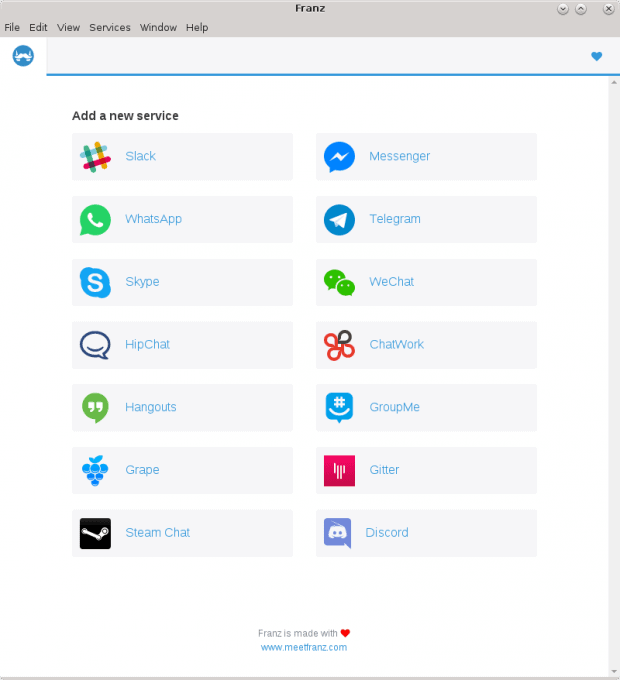
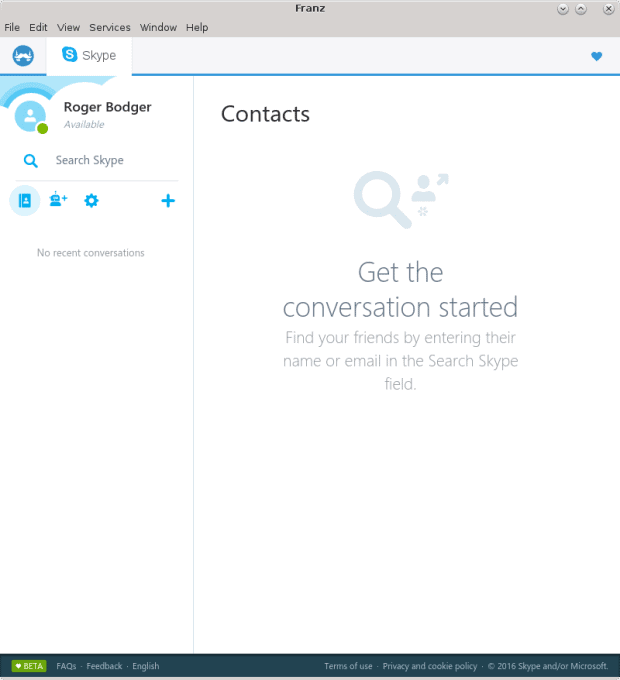
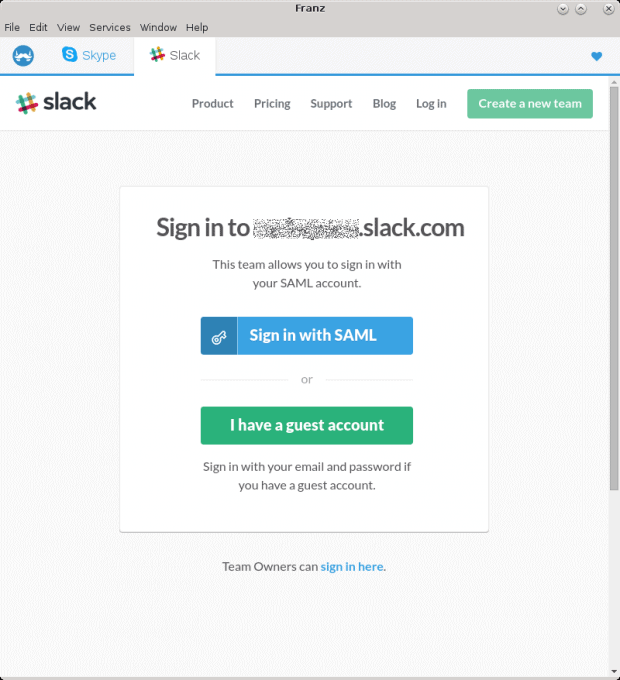
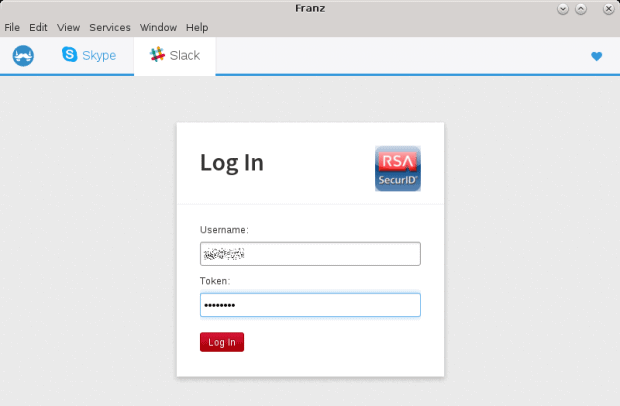
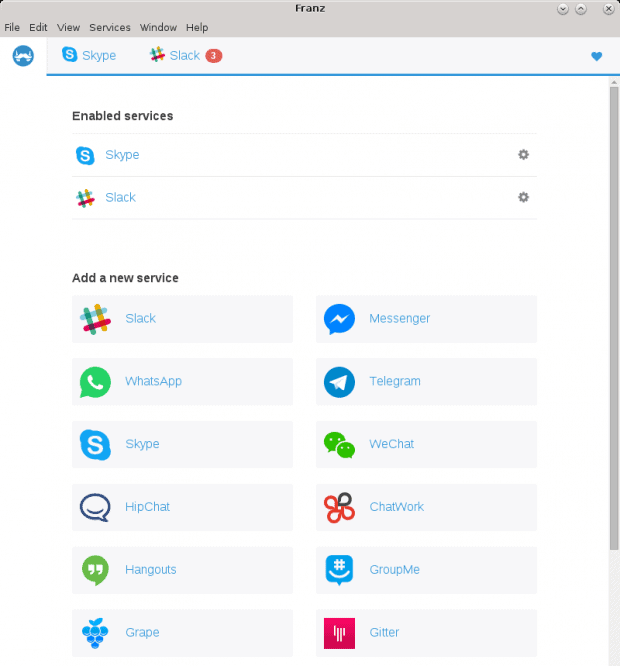
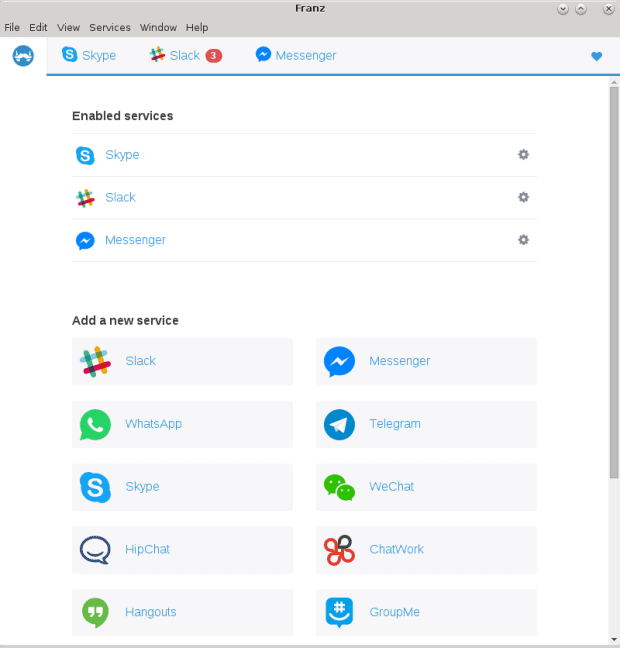
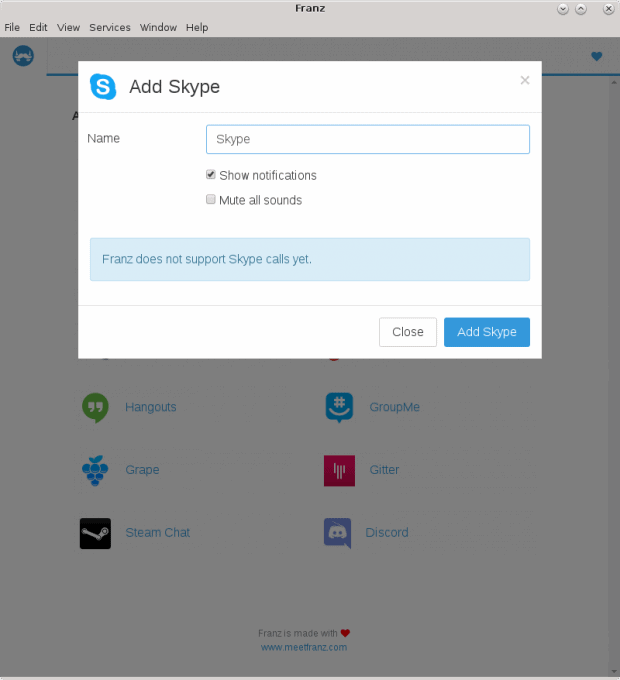
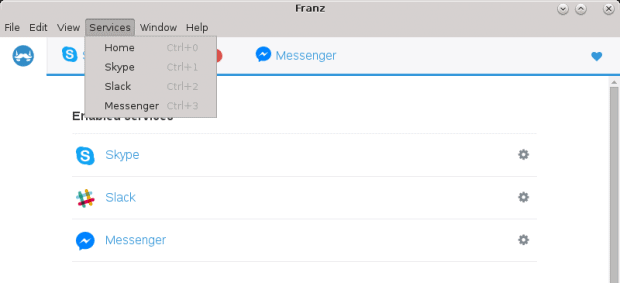
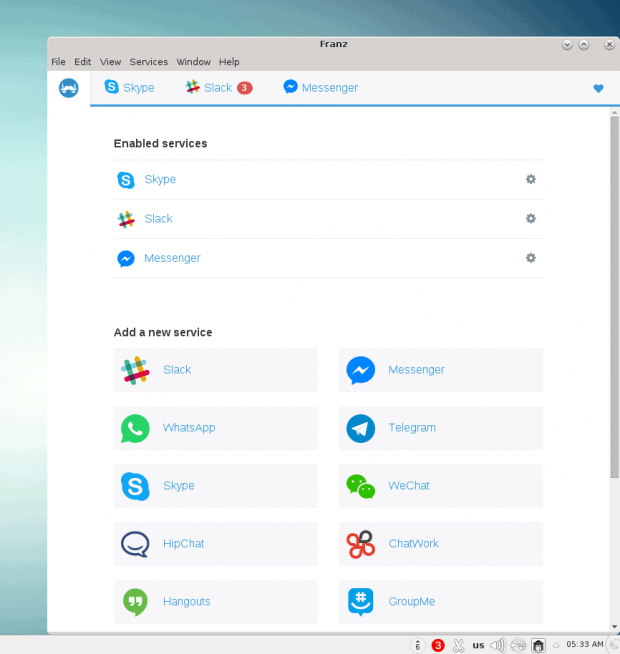




I feel that the main thing i would expect from this kind of an article would not be the test whether things turn on and dont crash while doing that, but rather a few weeks of active usage. That way a reader would have a much better understanding of its current state. But anyway, thanks for the read. And a pity that it isn’t libre/FOSS.